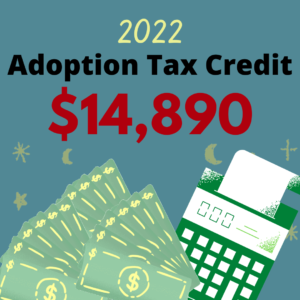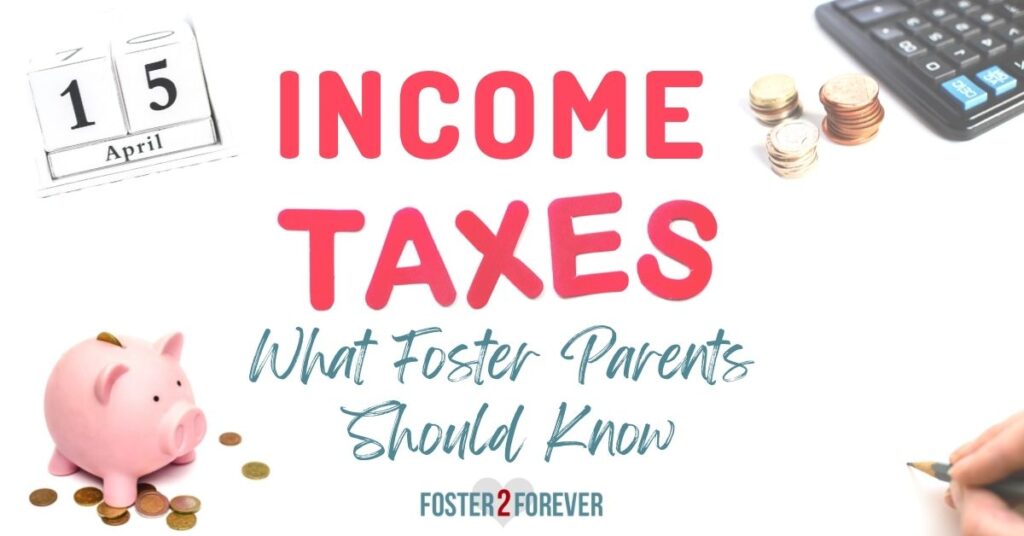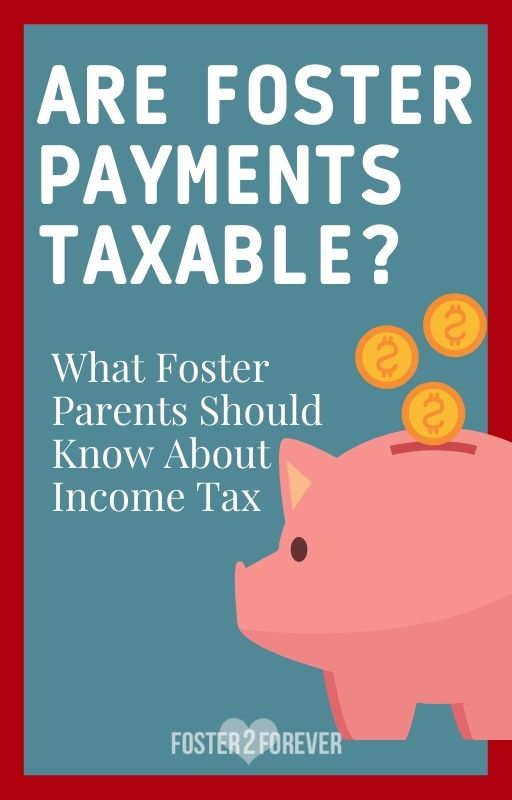Is Foster Income Taxable? What Foster Parents Should Know About Income Tax IS FOSTER INCOME TAXABLE? You do not have to report foster payments you received for providing foster care in your home as taxable income. Foster payments are...
Is Foster Income Taxable? What Foster Parents Should Know About Income Tax
IS FOSTER INCOME TAXABLE?
You do not have to report foster payments you received for providing foster care in your home as taxable income. Foster payments are NOT considered taxable income. (Foster payments are considered reimbursement)
According to the Turbo Tax website: “if care is provided to a qualified foster individual and they are paid by a state or qualified agency, foster care payments are NOT considered taxable income and are NOT included on tax return.”
These payments include those received from a state or local government or from a qualified foster care placement agency.
CAN I CLAIM FOSTER CHILDREN ON MY INCOME TAX RETURN?
You can claim a foster child on your tax return, only if the child has lived with you for over 6 months. (6 months plus 1 day) A foster child does not have to live in the foster parent’s home at the end of the year to be claimed.
IMPORTANT: Only one person can claim the same child.
TIP to avoid IRS problems: File your tax return as soon as possible in the event that birth family incorrectly claims a child. The IRS will immediately deny a claim if a child has already been claimed as dependent. It will be up to the second filer to prove to IRS that the child is their dependent. Foster parents who file after a child is already claimed have to go through this process.
WHAT IF I FILE AND THE CHILD IN MY CARE HAS ALREADY BEEN CLAIMED?
The quickest way to resolve this is to go ahead and file your tax return without claiming the child. Then, you can file an amended tax return Form 1040-X. Then, you claim the child and attach placement papers and other documentation proving the child lived with you over 6 months.
CAN I QUALIFY FOR EARNED INCOME TAX CREDIT FOR FOSTER CHILDREN?
You can now find out your filing status, your child’s status as a qualifying child, your eligibility for the credit, and estimate the amount of the credit you may get by using TurboTax.
WHAT IS THE ADOPTION TAX CREDIT?
Adoptive parents can receive a tax credit for the amount spent on adoption-related expenses. This applies even for failed adoptions. You can only receive tax credit for the amount you paid in taxes. However, you do have 5 years to carry over any unused credit from previous years.
HOW MUCH IS THE ADOPTION TAX CREDIT?
The Adoption Tax Credit for 2022 is $14,890. You can use the tax credit to reduce your federal tax liability (taxes you owe) for the next five years. For tax year 2022, the Adoption Tax Credit for qualified adoption expenses is $14,890 for each child adopted. You can adopt via public foster care, domestic private adoption, or even international adoption. The adoption tax credit only applies to Federal income taxes — NOT state income taxes.
HOW DOES THE ADOPTION CREDIT WORK?
You can only apply the adoption tax credit to how much you OWE in taxes. You cannot apply the entire $14,890 if you do not owe that much in Federal income tax.
For example, if you paid $5,000 in Federal income taxes, but actually only owed $3,000 in taxes, your income tax refund would normally be $2,000.
However, you can use the adoption tax credit and apply it to the $3,000 you owe and get back the entire $5,000 of taxes you paid as a refund.
What if you don’t owe $14,440 in taxes for 2022?
Here is good news — IRS allows you to apply the balance of the $14,440 tax credit over five years.
Continuing the example from above, the next tax year of 2023, you can carry over the remaining amount of the adoption tax credit. ($14,440 – $3,000 = $11,440) means you could apply $11,440 to what you owe in taxes in 2023 – each year up to tax year 2026!
Clear as mud, right?
That’s why we use TurboTax – just answer the questions and TurboTax will guide you through and complete the forms for you. TurboTax Deluxe is the version that includes the Adoption Tax Credit Form 8839.
WHAT ARE QUALIFIED ADOPTION EXPENSES?
Qualified adoption expenses include reasonable and necessary expenses necessary for the adoption. Examples of qualified expenses include:
agency fees, home study costs, court fees, attorney fees, medical examinations/physicals costs, dossier fees, traveling expenses (including amounts spent for airline, gas, meals and lodging while away from home), and other expenses that are directly related to the adoption of a child.Expenses for domestic adoptions that are not yet final can be taken the year after the expenses are paid or you can wait until the adoption is final.
HOW DOES THE ADOPTION TAX CREDIT WORK IF WE ADOPTED A SPECIAL NEEDS CHILD?
With the adoption of a U.S. child with special needs, you may be eligible for the maximum amount of credit for the year of you finalize the adoption, even if you paid no qualified adoption expenses.
If you adopt a child with special needs through foster care, you may be entitled to claim the full amount of the adoption credit even if you did not have expenses.
Each state has different criteria that qualify a child as “special needs”. The special needs declaration must come from the state in which the adoption was final. In order to qualify as a special needs adoption, you must have a signed adoption “Subsidy Agreement” with the state. (Some states call it the “Adoption Eligibility Assistance Determination.”)
WHAT IS CONSIDERED A SPECIAL NEEDS ADOPTION?
A child is considered special needs for purposes of the adoption credit if all of the following conditions are met:
The child was a U.S. citizen or resident when the adoption effort began (no international adoptions); A state determines that the child cannot or should not be returned to his or her parent’s home (child placed in foster care); A state determines that the child probably will not be adopted unless assistance is provided to the adoptive family (parents receive monthly post-adoption subsidy)Generally, special needs adoptions are the adoptions of children whom the state’s child welfare agency considers difficult to place for adoption.
Most foster care adoptions are considered special needs adoptions. Special needs adoptions can include:
minority children over the age of 2, any child over the age of 6, siblings placed together, or other special needs.If you receive a monthly subsidy after adoption, your child would fall into this category.
WHAT IRS FORM DO WE FILE FOR THE ADOPTION TAX CREDIT?
To claim the adoption credit or exclusion, complete Form 8839 (PDF), Qualified Adoption Expenses, and attach the form to your Form 1040 (PDF) or you could just download TurboTax and answer the questions.
Disclosure: I am not a tax professional. I compiled this information from the IRS website, Intuit TurboTax website, and my questions to a tax professional.


















